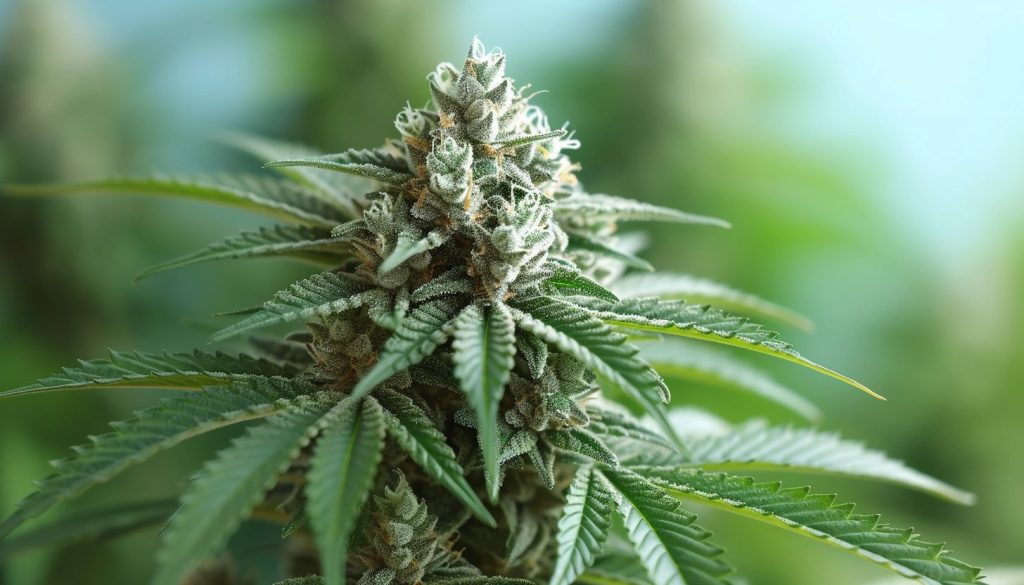THE type 1 diabetes is an autoimmune disease characterized by insufficient or no insulin production. This hormone regulates blood glucose levels, so people with this form of diabetes need to monitor their blood sugar levels and take insulin treatment.
For several years, scientists have been interested in the potential of cannabidiol (CBD), a non-psychoactive molecule present in the cannabis plant, for the treatment of various diseases, including diabetes. This article explores the different facets of the interaction between CBD and type 1 diabetes.
Sommaire
ToggleEffects of CBD on blood sugar and glucose metabolism
Blood sugar regulation is crucial for people with diabetes. Researchers have studied the effects of CBD on glucose metabolism and observed several interesting phenomena:
- CBD has shown an ability to reduce high glucose levels in rats with induced diabetes (British Journal of Pharmacology, 2006).
- Another effect observed is the potentiation of the effects of insulin. CBD seems to improve the action of this hormone by increasing its bioavailability, or the amount of insulin actually used by the body (Journal of Pharmacy and Pharmacology, 2006).
- CBD could also influence fat metabolism. A study carried out in 2013 suggested that the molecule acts on white and brown fat cells, promoting the transformation of the former into the latter (Biochemical and Biophysical Research Communications). This action could help prevent lipid accumulation in the liver and improve insulin sensitivity.
All these observations support the idea that the CBD could help regulate blood sugar and offer some relief to people with type 1 diabetes. However, it is important to remember that most of these studies were carried out in animal models and are not necessarily transferable to humans.
CBD and complications of type 1 diabetes
In addition to influencing blood sugar levels, CBD has properties that could be beneficial in preventing or alleviating certain complications related to diabetes:
- Anti-inflammatory properties : Type 1 diabetes often causes chronic inflammation of blood vessels and organs. CBD has demonstrated an ability to reduce markers of inflammation, as shown in a study published in the journal PLOS ONE in 2015.
- Neuroprotective effects : a common complication of diabetes is diabetic neuropathy, which results in pain, tingling and loss of sensitivity. Research in animal models has shown that CBD can reduce neuroinflammation and symptoms of neuropathy (Journal of Experimental Medicine, 2012; European Journal of Pain, 2016).
- Slowing the progression of diabetic retinopathy : this complication affects nearly 80% of diabetics and can lead to vision problems or even blindness. A team of researchers has highlighted a protective effect of CBD against oxidative damage which affects the cells of the retina and promotes the appearance of this pathology (American Journal of Pathology, 2006).
Should we recommend smoking cannabis to treat type 1 diabetes?
It is important to distinguish the CBD from other cannabis constituents, in particular tetrahydrocannabinol (THC) which has psychoactive effects and can cause cognitive disorders and affect the quality of life of people with diabetes. Additionally, cannabis smoke is harmful to the lungs and can worsen certain complications of diabetes.
Doses and forms of administration of CBD
When talking about the interaction between CBD and type 1 diabetes, it is essential to consider dosage and methods of administration. Indeed, the way in which CBD is absorbed by the body can influence its effects on blood sugar levels.
Researchers found that the blood sugar-lowering effects of CBD were dose-dependent (PLOS ONE, 2013): moderate doses presented therapeutic potential, while high doses seemed less effective or even counterproductive. Thus, it would be recommended to opt for a dosage adapted to the needs of each patient.
Regarding the means of administration, there are several options:
- Sublingual intake, using oils or lozenges containing CBD; this method allows direct absorption through the oral mucous membranes and avoids passage through the digestive system.
- Oral capsules, for slower but prolonged absorption; this option may be interesting for those looking for a lasting effect throughout the day.
- Creams and balms, especially to relieve pain related to neuropathy or prevent skin problems often encountered in diabetics.
Although the studies are encouraging, it is important to emphasize that CBD is not a miracle treatment for type 1 diabetes. It can, however, be considered in addition to traditional medical treatment, after consultation with a health professional.
Provisional conclusion
The interactions between CBD and type 1 diabetes open the way to interesting therapeutic approaches in the management of this disease and its complications. However, it is essential to continue research to better understand how to integrate this molecule into current treatments and guarantee the effectiveness and safety of diabetic patients who choose to use CBD.



